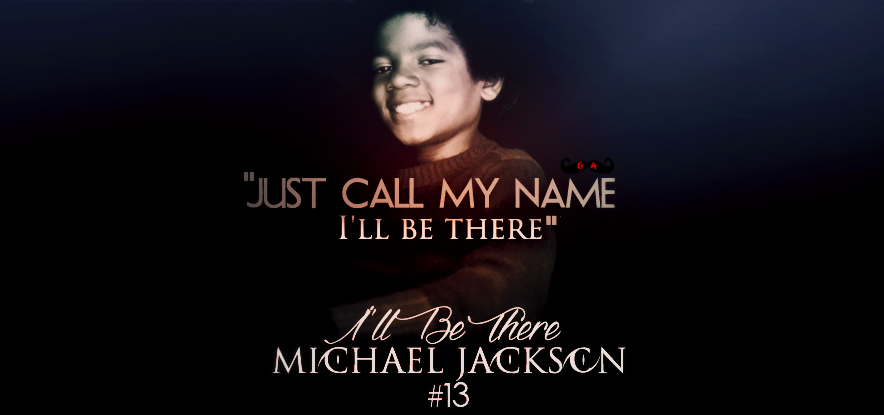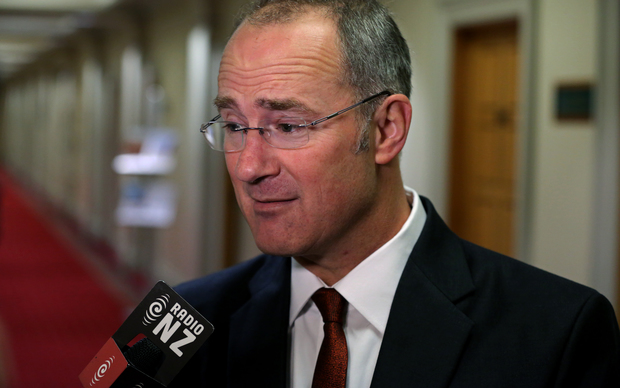 |
| Protesters outside McDonalds (in Auckland, probably). |
Well, I am happy, but not for the reason you might suspect. I'm not ecstatic about this because the workers are no longer being held hostage by uncertain schedules while their bosses whip them to a bloody pulp with a steel cat o' nine tails screaming 'work harder, you worthless scum! Who cares if your sisters' funeral is today!' Rather, I'm happy because it's disproven something that the cynical public have long since come to believe: that the two main parties, or 'The Reds and the Blues' aren't able to work together and come to an agreement on an issue. It may have been a long, bloody Pyrrhic victory, with the government calling it nothing more than a 'compromise', but all that matters is that it got passed. Bipartisanship is a possibility. Yay for democracy, right?
But that sounds
awfully boring, doesn't it? Politics is not entertaining when people
agree – it's entertaining when people stubbornly and violently disagree. Yes, but that's
also what makes politics so frustrating, especially when you're
somebody who enjoys studying the topic. When you do, you come to
appreciate that it's not always angels on one side of the house and
devils on the other. It's much more complicated than that, and when
we've spent the last 7 years with a government that stubbornly
dismisses almost everything the opposition does, and often vise
versa, seeing them finally agree on something is damn refreshing.
Well, okay, a fistfight in our parliament would be refreshing too, especially a brawl of Labour's Senior Whip Chris Hipkins vs National's Junior Whip Jami-Lee Ross, who is competing with Stephen Harper for the coveted 'Most Punchable Face in Politics' award, currently held by Ted Cruz.
 |
| 'Whip me, Tim McIndoe, Whip me Good.' |
This dilemma is nowhere more apparent than in the Greens. In September 2014 party co-leader Russell Norman declared they could work with National if they won the election. There was an outcry, of course, but it was shut down soon later, when John Key decisively ruled out working with the Greens.
All this happened a week after a conservative friend complained to me that Greens should be more willing to work with the government, and in an epic event of poetic justice, it was proven that it was not the Green party being stubborn, but the government itself.
| 'Why the fuck are you holding me up? You're the one with the cash... Oh wait - I just got it.' |
Douglas,
I wanted to make sure you were one of the first to know: we’ve put an end to zero hour contracts!
After over 56,500 Kiwis took action — by signing petitions, writing to Parliamentary Committees and emailing the Minister responsible — we did it. Together with the unions campaigning to end zero hours we’ve managed to change the law.
And it’s all down to people like you. Without you, we wouldn’t have been able to put huge pressure on National, forcing them to come to the negotiating table at the last minute. Because of our campaign, National were compelled to make the change that all of us demanded: banning zero hour contracts.
 |
| 'Well that's all 50,000 emails personally written and sent out. Chris told me I could've just typed it out once and sent it to multiple recipients, but fuck you, I'm doing it the Labour way.' |
But at the end of the day, it doesn't matter, because this isn't about politics, it's about ensuring that workers have that extra security. I'm going to create a quote right now – it's probably been said plenty of times before in different ways, but I'll take it through Squatter's Rights alone. It's 'there's bigger things to politics than politicians.' Which I think is true for all governments, whether in democratic parliaments or narcissistic dictatorships. Unless, of course, you're one of those gargantuan, radioactive 30 foot tall politicians, in which case, you are probably the biggest thing about politics.
 |
| 'Stop, Big Little, think about all the bad that will happen if you destroy the fair city!' |
Because that's what frustrates me the most – 'scarcity of democracy', as Frances Moore Lappé described it. That's what drove
me crazy about the asset-sales, the TPPA and the Iraq deployment, all of which National decided the public did not need to vote on. John
Key takes great relish in criticising Labour's divided attitude
towards the TPPA, but all that really shows is that Labour is more or less comprised of actual human beings with their own individual thoughts,
as opposed to a unified, mobilised squad of mentally-insulated
robots. You can argue realpolitik – you can argue that trade deals
are always done in secret blah blah blah, but you can't argue that a bunch of people
are disillusioned and feel that just tiny little bit more alienated
from their elected officials. And we can all agree, no matter where
on spectrum you are, that alienation sucks. We should have the right
to trust our politicians just as much as we do our teachers, our
policemen and our doctors, and the robots who will one day serve us at restaurants to not get our orders mixed up.
| I think if we elected these guys to the House of Representatives not much would change but they probably wouldn't binge on as many tax dollars. |
But Joe, you're
talking about this from such an alien perspective, why not discuss
the way this has helped working-class people? Well, yeah, it has
helped. Only stupid people will deny that, but I'm trying to look at the big picture, and then my my view of the big picture (I don't always succeed) but I think the
big picture is worth discussing, because, as someone who has become
so cynical over the political process, it is refreshing to see a
bipartisan victory. But I'll talk about the bill anyway, because I do
have views on it.
First of all,
congratulations Mr. Little on helping this bill come forward. You've
been outspoken over this for a long time, so you can now say
you've seen an end to it under your time as opposition leader, and
let's be honest: the amount of zero-hour contracts would most
certainly have skyrocketed under this National government. That's why
we always hear about the government bringing in jobs, but we never hear about good jobs, and secure jobs,
and well-paying jobs, because that's what really matters. During the
2014 Northland by-election, National candidate Mark Osbourne refused
over and over again to go into detail about the 7,000 regional jobscreated under the government. Having spent some time in Northland
recently and getting to know the scene, I'm assuming almost all of
these jobs would be seasonal harvesting (WWOOFers from Germany, I'm
watching you) as well as hospitality roles, many of them with zero hour
contracts. I'm assuming here, but it's a fair assumption to make.
So what's the big
deal with a zero-hour contract anyway? Well, I know plenty of people
with zero-hour contracts – and they are far more common than we
think, but we don't discuss it. Most people don't even call them 'zero-hour' contracts. After all, it's not something that's printed blatantly on your contract
or job listing. Simply put, you're told this is a 'casual contract'
and you go from there. The first zero-hour
contract worker was my brother, who would easily top 60 hour weeks in
labouring work without being guaranteed any of them. He would take
every opportunity given, out of concern that any day now, the
work might dry up. Uncertainty does play a significant role in
zero-hour workers, and it's on of the biggest and fairest arguments
against them. Simply put, people like to know when they are needed, and
when they aren't needed for work, because then they can freely plan the rest of their
lives. It's not just an issue of convenience. It's the foundation of a good, balanced lifestyle, and a decent pay check.
 |
| Pro-zero hour contract subliminal messages are everywhere in our music! Once you hear it, you can't un-hear it. |
So what if you
aren't looking for a good, balanced suburban lifestyle with 700 bucks a week?
What if you're a ramen-munching student living on support and you
just want your foot in the door? Well, this is the argument that the
pro-zero group will pitch, and it's a good argument, I'll admit, because it
works. My last job was a full-time technical I.T support role, and many
of my co-workers were students of Computer Science at UoA, AUT or
MIT. Most of them were living off student allowance, family support
or some other form of support (as every student is these days) and the zero-hour contracts being handed out liberally, definitely helped them. It was fair. Nobody
seemed left out – they were all given plenty of shifts, and they were all happy with the amount of work they were getting. Eventually, the company changed their policy from
zero-hour casual to part time contracts, where each
employee was now guaranteed at least a few hours. Most of the students
worked as many hours as they could muster, so the conversion to
part-time contracts made no difference. The only change was a
reinforced sense of security, but being students with ever-changing
schedules, that extra security didn't really matter.
It's a good argument, but this example
isn't representative of most people on zero-hour contracts, and it's
important I point that out, because that lifestyle may be fine if
you're a caffeine strung student juggling your calendar commitments
between studying for a technical career (like I.T) and a well-paying
job that relates to your field of study (technical support). The
playing field changes a lot if:
1. You're no longer
studying and looking to settle down
2. Your job is a
low-paying, dead-end contract that doesn't support your career.
Because both of
those are equally important. So, Mr. CompSci Office Worker, things
may be good now, but what happens if you graduate, and you aren't
getting enough hours? Likely they would have given you a better deal
by then, especially if you're a good worker (assuming all these
people are good workers, right?) but what if you aren't so fortunate
to be working in a job that relates to your study? What if you can't
find one? What if you have no choice but to flip burgers at
McDonalds?
I 'll bring up a few anecdotes and hopefully try to sound as un-racist as possible, so here we go: I remember the first time I travelled across the country, astonished that in the Midlands, in
Waikato and Manawatu, that none of the petrol-station and fast-food
workers were Indian. Of course, Auckland is one of the best cities
for students, and it attracts plenty of foreign students. Foreign
students don't have the support that citizens do, so they have a
greater motivation to find any work, anywhere. I'm not saying
foreigners work harder than locals (some of the worst customer
service I've ever received has been from foreign petrol station
workers) But most of the foreigners that work in these jobs are
students. So what if you're in their position, and you're studying
law, or economics or commerce or whatever, and you simply… can't
find a relevant job? You're still working at that petrol station, but
you're not getting decent hours, your support from abroad or your
allowance is drying up, and you simply can't find more opportunities?
But this is when things delve into the government interference vs.
personal responsibility debate. One side will say 'work harder and
your boss will give you more hours', and 'search harder and you'll
find the relevant job'.
Well first of all,
since when was it a requirement that you work so much harder than is
expected of you? Don't get me wrong, I'm not saying people shouldn't
try to do their best – I love the 'above and beyond' philosophy,
and I've applied it to every job I've had. But I regard it as what it
is: a motivational philosophy, not a rule by which we must follow and
risk our hides for. If someone gets fired, you can say 'you didn't do
your job properly'. Yes, you were supposed to put the patient to
sleep before slicing him open and removing his kidney, not
afterwards. You're fired. Fair enough, but you can't say 'we fired
you because you gave 100% instead of 110%.'
The second idea is
that you need to search harder to find a job. Well, likewise, we are
taking this attitude and putting it in the wrong context. Yes, you should be a
vigilant, optimistic job seeker. Think positive, think confident blah
blah blah. I think it's important that we teach these qualities. But the problem is when we mistakenly treat that like a rule of
nature, instead of what it really is: just another motivational philosophy. Positive thinking has
power, but it won't move mountains. The Titanic was built under the very positive tagline that it would be 'unsinkable' before quickly proving
to be anything but. The designers of the Titanic could have done with
a bit more pessimism. The 'she'll be right' attitude can get you the
approval of your mates, but it might not work with the safety
inspector.
 |
| 'Sorry to interrupt, folks but I'm here to teach you the power of positive thinking, which I'm sure you could do with right now.' |
Labour, in this
case, is the safety inspector. Because this is what we must realise:
abolishing zero-hour contracts is not a big ask of the business world. It's not like automatically putting the minimum wage to 20 bucks/hour. Like my example with
my co-workers, changing from zero-hour to part-time made very little
difference in their lives, they still worked the same amount of
hours, except they were now required to show up for 5 hours on
Sundays. But this isn't about them. When we talk about the benefits
of students getting their foot in the door through zero-hour
contracts, we're proving there is a good side. Sure. But what we're
not doing is proving anything to dispel the bad side of these
contracts, which is if you're that commerce graduate working weird
hours at a petrol station, where the only commerce you're learning
about is consumer choices in bubblegum, you may not have enough to
get by, and you're so shackled by the uncertainty of whether you're
needed or not that you can't pursue better things in your life than
standing in a petrol station.
Some people are
raised with a gushing fountain of positive thinking, and some with an
erupting volcano of negative thought. The latter seems to be the
point of blame for everything that's wrong with this world, from
'lazy, employable millennials' to 'ant-business naysayers' but guess
what, there's a reason we evolved to (or God made us) think negatively, because it's
damn handy. It would've been handy in the case of the Titanic, and
it's handy in the year 2016 because it's helped our parliament to
realise: just because your daughter is doing well with a zero-hour
contract, doesn't mean everybody is.
Sometimes it's good
to 'Think Little'.






























